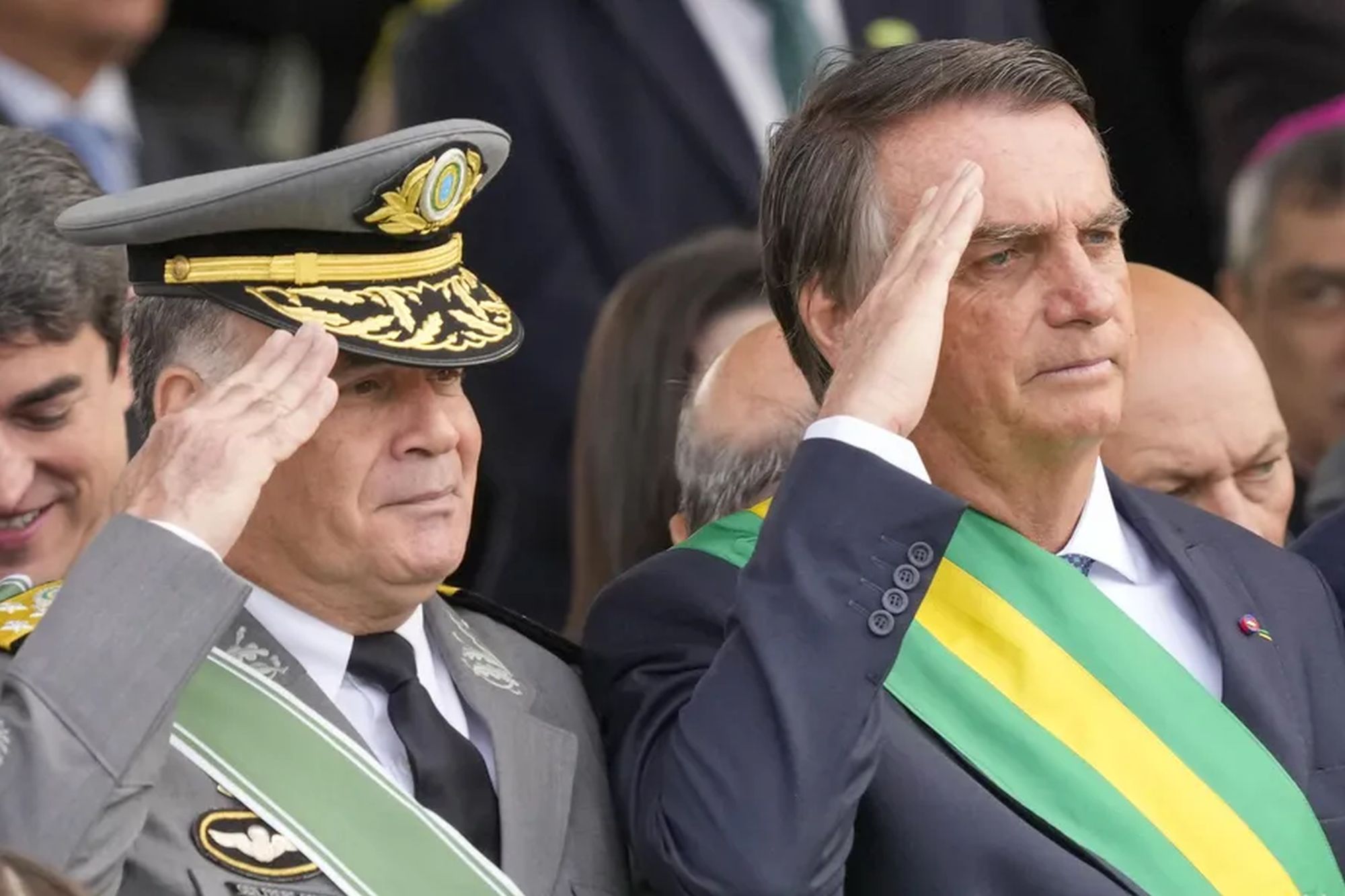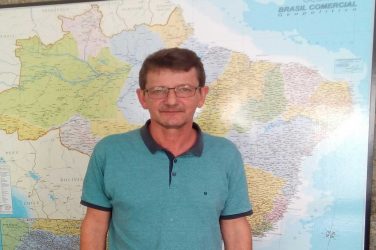Two former Brazilian military commanders said former President Jair Bolsonaro discussed a possible coup d’etat to remain in power after losing the 2022 election, according to judicial documents released Friday.
The testimonies place Bolsonaro at the center of a plot to declare martial law and stop leftist President Luiz Inacio Lula da Silva from taking office.
The alleged plot did not eventuate. Bolsonaro left the country to avoid handing the presidential sash to Lula but days later, his supporters stormed government buildings and shut down highways in an attempt to overturn the result on January 8, 2023.
Supreme Court Justice Alexandre de Moraes ordered the release of the documents as prosecutors investigate links between Bolsonaro and the riots in Brasilia on January 8.
Bolsonaro has denied that he and his supporters attempted to stage a coup.
What did the military officers say?
According to the police report, army commander Marco Antonio Freire Gomes testified that he and other top military leaders attended several last-minute and unscheduled meetings at the presidential palace after the second round of the elections “in which then-President Jair Bolsonaro offered possibilities of using legal tools… regarding the electoral process.”
At one of the meetings, Bolsonaro allegedly said he wanted to create a commission to “investigate the confirmation and the legality of the electoral process,” according to the testimony from Freire Gomes.
But Freire Gomes told federal police that he “always made it clear to the then-president that, under the conditions at the time, there was no possibility of reversing the result of the elections from a military standpoint.”
Another military officer, former air force commander Carlos de Almeida Baptista Junior, told police that he also rejected Bolsonaro’s plans, according to the documents. He said Freire Gomes was a key figure in preventing Bolsonaro from acting on the alleged plot.
“If the commander (Freire Gomes) had agreed, possibly, a coup d’etat attempt would have taken place,” the federal police documents quote Baptista Jr. as saying.
“Gen. Freire Gomes said that if such move was attempted he would have to arrest the president,” the police documents add.
The documents state Baptista Jr. also testified that the former commander of Brazil’s Navy, Fleet Admiral Almir Garnier, “said he would put his troops at Jair Bolsonaro’s disposal.”
How did Brazil’s politicians respond?
The chair of Lula’s Workers’ Party, Gleisi Hoffmann, said the revelations on Friday proved that “the president’s victory was fundamental to keep democracy” in Brazil.
“We are on the right side of history,” Hoffmann said on social media.
Meanwhile, Bolsonaro’s lawyer Fabio Wajngarten said he had never heard of any plot for the former president to stay in office and lashed out at the officials who testified to police.
“They are friends of whoever holds power. Their insignificance is their biggest and best trait. Sycophants. Dazzled by microphones, waiters and drivers. Mediocre,” he said, without mentioning them by name.
The story
Former Brazilian Army Chief Marco Antonio Freire Gomes admitted Friday before Federal Police investigators that he had been approached by then-President Jair Bolsonaro to explore the possibility of overturning the outcome of the 2022 elections through military actions.
Freire’s statement concurred with those of other high-ranking officers who said Bolsonaro openly entertained the idea of staging a coup d’état after being defeated by Luiz Inácio Lula da Silva in the runoff.
According to Freire’s testimony, Bolsonaro met on Dec. 7, 2022, and on two other occasions with the military leadership at the Alvorada Palace to seek different legal mechanisms to stay in power after the handover scheduled for Jan. 1, 2023.
On Jan. 8, 2023, scores of Bolsonaristas rampaged through the iconic buildings of the Planalto Palace, the Congress, and the Supreme Federal Court (STF) in Brasilia in a move to encourage the military to overthrow Lula.
According to Brazilian media citing Freire Gomes’ testimony leaked to the press, Bolsonaro planned to seize the Superior Electoral Court (TSE) to “clarify the conformity and legality of the electoral process,” in addition to imposing a state of siege through a decree similar to the draft found in January 2023 in the house of Bolsonaro’s former Justice Minister Anderson Torres.
Freire also stated that he and the former Air Force Chief Carlos de Almeida Baptista Junior opposed “in a forceful way” the content exposed by Bolsonaro and assured that “there was no legal support to take any attitude.”
In light of this testimony, Supreme Federal Court (STF) Justice Alexandre De Moraes lifted the seal of secrecy from the statements of those investigated by the Federal Prosecutor’s Office, including Bolsonaro and the military top brass.
This week the STF sentenced another 15 people to prison terms of between 14 and 17 years for the Jan. 8 events, bringing the total number of those sentenced to 131, despite the defense’s arguments that their clients intended to participate in a peaceful demonstration and were never in a position to carry out a coup d’état.
Beyond the two military commanders, police have statements from three other witnesses that directly implicate Bolsonaro as the main conspirator behind the coup attempt, a police source told reporters.






